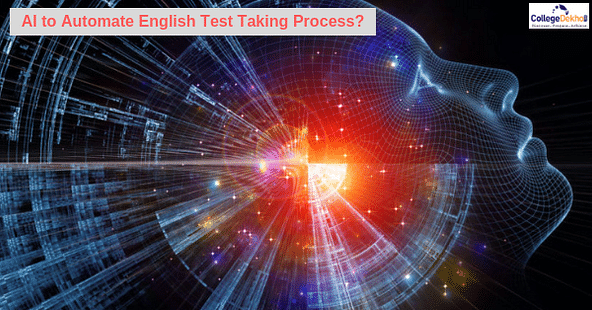Artificial Intelligence (AI) technology may be used widely to conduct English proficiency tests for admission to colleges and universities. The Pearson Test of English (PTE) is one such exam that has implemented just that.

When one has to pick the right course of action to determine their English skills, standardised English tests are perhaps the best option to take. These standardised tests provide a fair and holistic perspective of one's aptitude - something that is an ideal situation that anyone looking out for their best interests would be happy to go for.
However, the current system of the standardised testing process is not as accurate and authentic as it might seem. Various external factors impact the results, which means that the end result might be inaccurate and skewed. This mainly arises due to the prevalent problem of human error – the prominence of human examiners implies that irrespective of the effort or the quality of work, there’s a chance that a mistake might be made during the grading process.
Therefore, to avoid these errors, the best measure to take is to implement a form of technology which allows candidates to perform to their maximum potential while simultaneously providing them with fair, accurate and unbiased results. The Pearson Test of English (PTE) is one such exam that has implemented just that.
This is where the concept of Artificial Intelligence comes into play.
Also Read: English and Foreign Languages University Launches Mobile App for Spoken English
In the modern age, automation is slowly taking the driver's seat, optimising the activities of a plethora of avenues and sectors by enabling them to achieve greater heights. The education sector is no exception to this rule. Examinations like The PTE Academic exam has adopted the new-age technology to streamline the learning process and make it more accessible to students.
With Artificial Intelligence and automation, the results obtained will be precise, and there would be no scope for any mistakes since the algorithm set in place will help determine the results accurately. The results are also delivered quicker which means that the candidates don’t have to wait for an extended period of time to obtain their results. The PTE Academic exam delivers results within three to five working days using Artificial Intelligence and automation technology.
Also Read: B.A English (Hons) Still a Favourite Course for DU Admissions
Thus, with the implementation of automation, standardised testing will become a seamless experience. These examinations are going to become the norm in the near future. Therefore it is imperative to streamline this process as soon as possible. In this context, it must be said that the adoption of the latest technological innovations will go a long way.
Note* - Except for the headline, no changes have been made to the editorial content of this article. The news has been facilitated by Pearson PTE Academic.


 Follow us
Follow us













